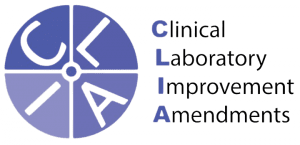Employers and employees often persist at odds over the value of workplace drug testing. From the perspective of employers, drug testing acts as valuable source of screening for employees whose drug use could influence productivity or morale. Employees, on the other hand, often maintain that drug testing violates rights to privacy and creates an antagonistic work environment. Despite differences of opinion, drug testing comes with an assortment of inarguable benefits.
Safer Work Environment
This first advantage affects both employers and employees. Drug abuse can create a definitively unsafe work environment. Whether the drug use leads to mood swings, or the actual presence of illegal substances on the job, no one will argue for the inherent safety of illegal drugs. This becomes especially true for work environments that involve chemicals or heavy machinery.
Less Turnover
Employees with drug problems are much more likely to shuffle between jobs. With turnover rates more than 3x higher for those with drug problems, employers wind up spending more time and money on recruitment. High turnover also creates an unstable work environment that can have a wide-ranging effect on morale and productivity.
Deterrent
Naturally, drug testing will also act as a deterrent to potential drug users. Few people will actively seek to lose their own job, and openness about drug testing can provide all the convincing that many people need to abstain.
How accurate are home drug tests compared to lab tests
Typically, distinct strips for each drug are used in home drug testing. The strip includes reagents, a technical word for chemicals that react to the drug’s metabolites in your body. You are looking for a chemical reaction between the reagent on your test strips and a specific number of metabolites in the subject’s urine when you conduct a drug test using a cup, such as our 12-panel drug test at home. It is like a miniature science lab in your home. Home drug tests are regarded as qualitative and presumptive, which means they cannot provide precise information about the amount of drugs contained in the sample or what a positive result indicates.
Several methods can be used to test for drugs in a lab. Sometimes, a lab may conduct testing using the same reagents used in at-home drug tests. When someone sends a sample to a lab for testing, it is typically anticipated that they will, at the very least, utilize a presumptive drug testing procedure that is evaluated with the aid of an instrument. This typically indicates that they are using a drug test plugged into a machine that reads the findings, similar to ours. This process eliminates subjectivity and human error. The main goal of sending a sample to a lab is to obtain a confirmation using chromatography, mass spectrometry, or immunoassay. Some of these instrument chemical analyzers can provide information on the sample’s metabolite content in terms of amount.
DNA Testing for a Healthier Work Environment
Creating a friendly and empowering atmosphere is the first priority for every firm. However, doubts about hazards like harassment or drug problems can contaminate workplace culture. It seems insensitive to evaluate dangers, but ignoring them seems careless. These doubts can highly influence the environment of the workplace, once doubts peek in, the environment can become toxic for both employee and employer. Fortunately, recent developments in genetic testing technologies make it possible to promote workplace health subtly by offering drug tests that can resolve and erase many lingering doubts.
To help with preventive assistance, ChoiceDNA offers customized employee DNA drug tests.
Contagious Disease Checkup
It’s well knowledge that genetic screening can dramatically lower the prevalence of workplace illness. Employers can utilize the data gathered from genetic testing to make sure that present or potential workers aren’t put in unsafe conditions. However, detractors of this new technology argue that screening infringes upon workers’ rights and exacerbates racial and ethnic discrimination at work; these arguments gain more weight in light of the availability of testing for characteristics unrelated to job-related illnesses.
In addition, supporters of screening contend that, in contrast to the accusations made by opponents, genetic screening does not infringe upon an employee’s rights. Employees or job seekers who disagree to screening are allowed to look for work elsewhere and refuse to be tested. Additionally, companies have a legal right to implement procedures that safeguard this interest, such as genetic screening, and an interest in keeping a fit and productive workforce. In fact, an employer may be considered responsible if they neglect to test a high-risk employee who later contracts a disease as a result of exposure to chemicals at work. Employers should thus be allowed to screen such employees in order to safeguard their interests.
At Choice DNA, we can provide for workplace drug testing at any of our 6,100 locations nationwide. If you would like to explore the benefits of this service for your own company, contact us today at (800) 219-4362.



















